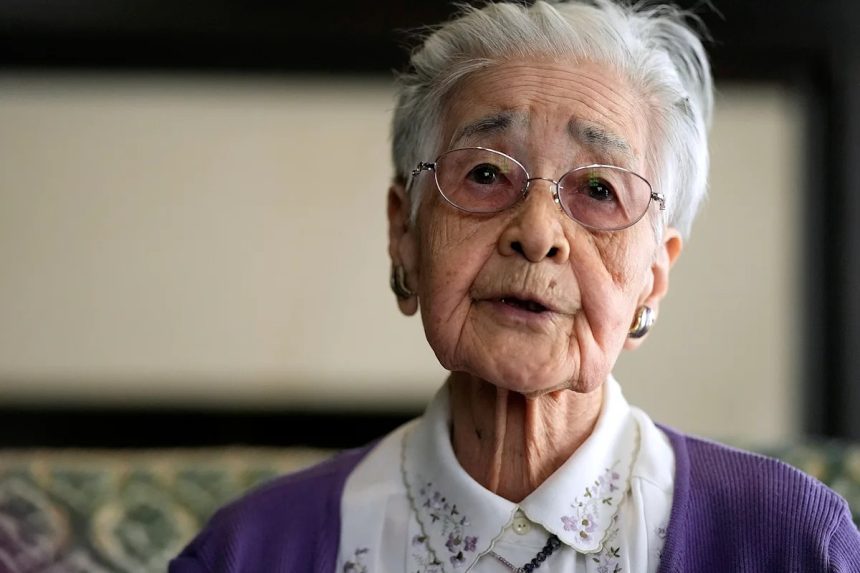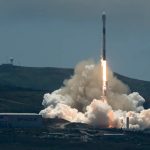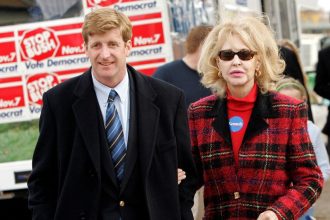TOKYO (AP) — Friday is the 80th anniversary of then-Emperor Hirohito’s announcement of Japan’s World War II surrender, but as living witnesses die and memories fade, questions remain in Japan about how the war should be taught to younger generations.
A national ceremony will begin at Tokyo’s Budokan hall at noon, the same time then-Emperor Hirohito’s 4½-minute prerecorded speech began on Aug. 15, 1945, on national radio.
Hirohito’s responsibility for the war remains controversial today, and Japan has struggled to come to terms with its wartime past, both at home and in the Asian countries it brutally invaded.
In 1995, then-Prime Minister Tomiichi Murayama apologized over Japan’s aggression in Asia. It was welcomed abroad but there has since been continual pushback against it by revisionists and those who deny responsibility.
Here’s a look at the speech and the memories of some of the people who heard the announcement.
Japan’s military saw violence, suicides and chaos right up until the official surrender
Even after the atomic attacks on Hiroshima and Nagasaki, there was dispute within the military government over if or how the war should be ended.
The day before the announcement, Hirohito, dressed in a formal military uniform, met with top government officials in a bunker at the Imperial Palace to approve Japan’s surrender.
Staff members for NHK, the national broadcaster, were secretly called in, and Hirohito recorded the speech twice, finishing late that night. Palace officials hid the recordings to protect them from sabotage attempts by a group of army officers, who at one point seized the broadcast facility.
Despite the chaos, palace officials safely delivered the recordings to NHK for radio transmission at noon on Aug. 15, 1945. Up until the moment of the surrender announcement, there were suicides, coup attempts and fighting among army officers.
The action-filled drama of the days before Hirohito’s radio address was made into a film, “Japan’s Longest Day,” as well as a graphic novel.
Hirohito’s voice, which most Japanese were hearing for the first time because he was considered a living god, was not easy to understand because of poor sound quality and the arcane language he used. The message was clear, though: Japan had lost the war.
Fumiko Doi heard the emperor’s address at home in Nagasaki just 6 days after surviving the atomic bombing
She remembers that her neighbors gathered at her home to listen to a radio placed on top of a cabinet. She did not understand what exactly was said, but later learned it was the announcement of Japan’s surrender.
It was not a surprise, because she had heard her mother say that Japan would lose.
“I only wish the emperor had issued an order to end the war sooner,” Doi says.
The Nagasaki bombing and an attack on Hiroshima three days earlier together killed more than 210,000 people and left many survivors with radiation-induced illnesses.
On Aug. 9, 1945, at 11:02 a.m., Doi was on a train 5 kilometers (3 miles) away from the location a U.S. B-29 dropped the atomic bomb. Her mother and two of her three brothers died of cancer, and two sisters have struggled with their health.
Relief and tears as the emperor’s speech reached a hospital filled with wounded
Reiko Muto, who survived the massive Tokyo firebombing just five months earlier as a 17-year-old nursing student, was at her hospital on Aug. 15. Everyone gathered in an auditorium for “an important broadcast.”
People cried when the emperor’s muffled voice came on the radio.
“The first thing that came to my mind was that now I could leave the lights on at night,” Muto said. “I was so relieved that the war was over.”
The March 10, 1945, U.S. firebombing of Tokyo killed more than 100,000 people. Truckloads of people with serious burns cried in pain and begged for water, but because of a shortage of medical supplies, the best she could do was to comfort them.
But the end of the war didn’t immediately end the hardship. Her hospital and nursing school were occupied by the allied powers, though she managed to graduate two years later and pursued a career in pediatric nursing.
“What we went through should never be repeated,” she says.
For Tamiko Sora, a Hiroshima survivor, the surrender speech is a bittersweet memory
Sora, her two sisters and their parents barely survived the atomic bombing on Hiroshima on Aug. 6, 1945, when the blast destroyed her home just 1.4 kilometers (0.9 mile) from the hypocenter, and Sora’s face was burned. Her grandmother suffered severe burns, and her uncle and aunt were never found.
While taking shelter at a relatives’ home, her parents listened to the radio broadcast, but sound quality was particularly bad in Hiroshima because the atomic bombing destroyed key infrastructure.
Her grandmother, who died later that day, sounded disappointed about the announcement, Sora said.
Her grandmother’s generation venerated the emperor, and his acknowledgment of Japan’s defeat must have discouraged her far more than the rest of the family imagined, Sora said.
Despite the sadness of her grandmother’s death, the surrender speech gave Sora peace of mind.
“War brings horror and intimidation even to little children,” she said.
The emperor and prime minister speak on Aug. 15
Hirohito’s son and grandson have repeatedly expressed deep remorse over the war, but prime ministers since 2013 have not apologized to Asian victims of Japan’s aggression amid a government lean toward revisionism.
Hirohito’s grandson, current Emperor Naruhito, has repeatedly stressed the importance of telling the war’s tragic history to younger generations. He has traveled to Iwo Jima, Okinawa and Hiroshima, and is expected to visit Nagasaki with his daughter, Princess Aiko, in September.
Prime Minister Shigeru Ishiba, who has signaled a more neutral view of Japan’s wartime history, has said he is determined to keep passing on the tragedy of the war.
But his leadership comes as emboldened ultra-conservatives in his party try to force him out over a July election loss.









